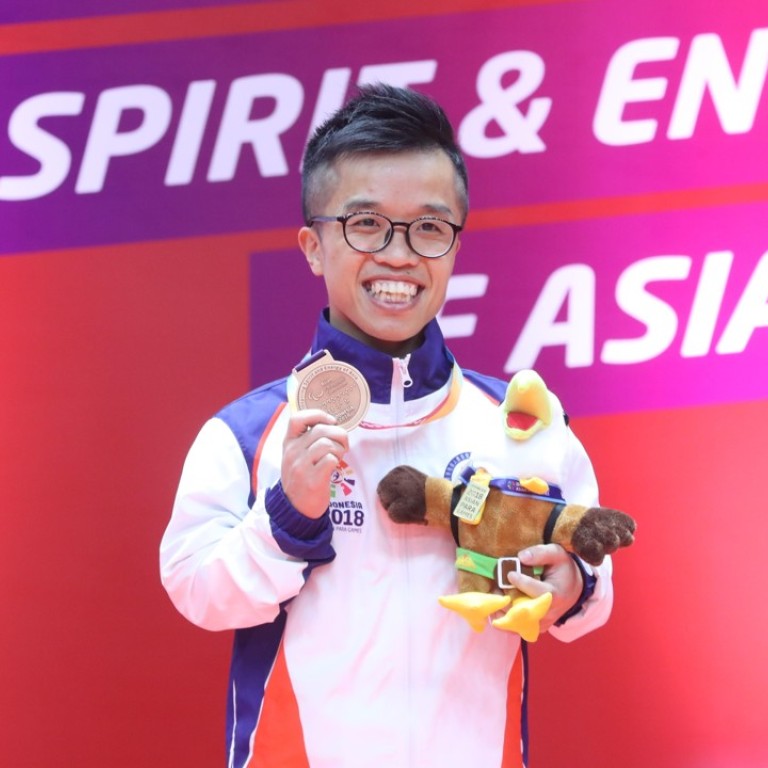
Disabled badminton player aiming for Tokyo 2020
- Patience, determination and positive outlook have Tim Wong Chun-yim on path to Paralympics
Badminton player Tim Wong Chun-yim got his first taste of the sport when he was 10, only to give it up a year later.
“My father wanted me to take up a sport as a hobby. I didn’t choose football or basketball because I might have been knocked down easily playing contact sports. I decided to try badminton because even if I fell, it would only be me in the court,” said Wong, who has achondroplasia, a genetic bone growth disorder that leads to short stature.
He stands 1.36 metres, and weighs 45 kilograms.
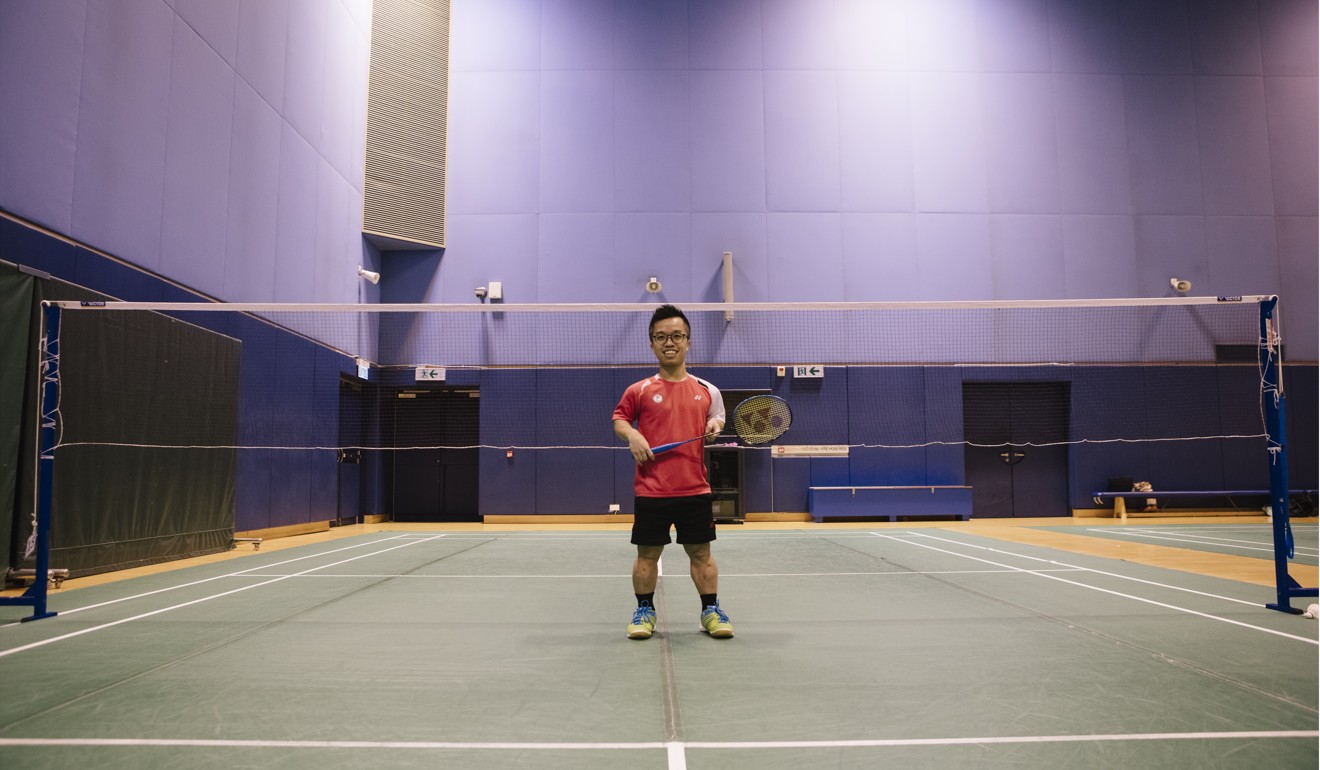
Now 30, Wong’s early days of badminton training were a traumatic experience.
“Other people were much taller and stronger, and they ran much faster. They were making progress much more quickly than I did. I felt defeated and stopped training after a year,” he said.
I’d be lying if I told you I didn’t feel defeated every now and then growing up, but I figured I would live in misery if I kept dwelling on things I cannot change
Even though he stopped, badminton continued to hold Wong’s interest, so he kept playing for fun with friends. During a friendly game in 2013, Wong’s life changed when a member of the Hong Kong badminton team happened to be watching, spotted his talent and told him about the elite sports training options and competitions open to physically disabled athletes in Hong Kong.
In a bid to challenge himself and set new life goals, that year Wong started training with the Hong Kong Paralympic Committee and Sports Association for the Physically Disabled. He soon became Hong Kong’s first para-badminton player to compete internationally in the short stature (SS6) category.
He entered his first competition only a few months into training, gradually rising up the international ranks. Currently, he is third in the world in the SS6 category and this summer he defeated English world number one Jack Shephard in the SS6 men’s singles final of the Thai Para-Badminton International.
This is quite a feat, given the challenges Wong faced along the way.
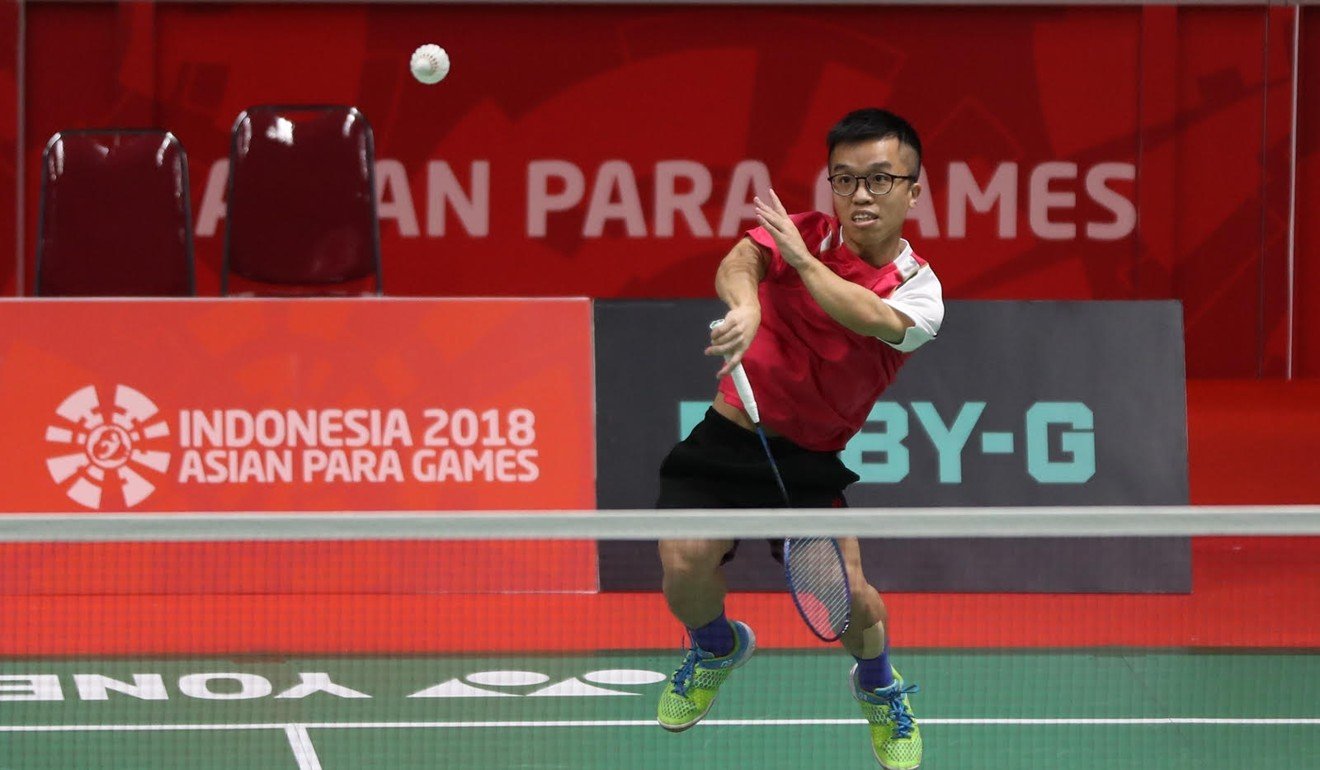
When he started competing, he was deeply uncomfortable playing in front of an audience, often losing focus during competitions. He also found it hard to get motivated after losing a few points in a row.
Support from a psychologist helped Wong learn to cope with nervousness using techniques such as focusing on the ball (rather than the audience), and walking around the half court in small, even steps to keep his attention on the game.
Like many athletes, Wong experienced frustrating failures on court. He tries to learn from them, and do better next time.
His defeat in the SS6 men’s final of the 2016 Asian Para-Badminton Championships, for example, marked a turning point in his career.
Tim always has been smart and extremely hard-working. But he has also learnt to cope with a situation with courage and take on a challenge with confidence
“Halfway through the match, I started running out of breath. I wanted to win so badly, but my body wouldn’t let me.
“It was frustrating to feel physically unprepared, and even more so to lose the game when I had a chance to win. I was disappointed in myself for not having tried my best.”
Wong works in finance and devotes almost all his spare time to training. He does on-court training at the Hong Kong Sports Institute (HKSI) four evenings a week and works on fitness two other nights to improve speed, strength and endurance.
He doesn’t mind the sacrifices he has to make, and knows he will be left behind if he doesn’t keep moving forward.
Wong has come so far already. Head coach Ally Cheng Fai-yin has witnessed his transformation from novice athlete with doubts about himself into one of the world’s best badminton players.
“When he first came, he would often say he couldn’t do it or that a certain task was too difficult,” said Cheng.
Before going to see Cheng, Wong had not done any sport. As a result, he struggled with some of the exercises – for example, completing a 400-metre circuit of the track.
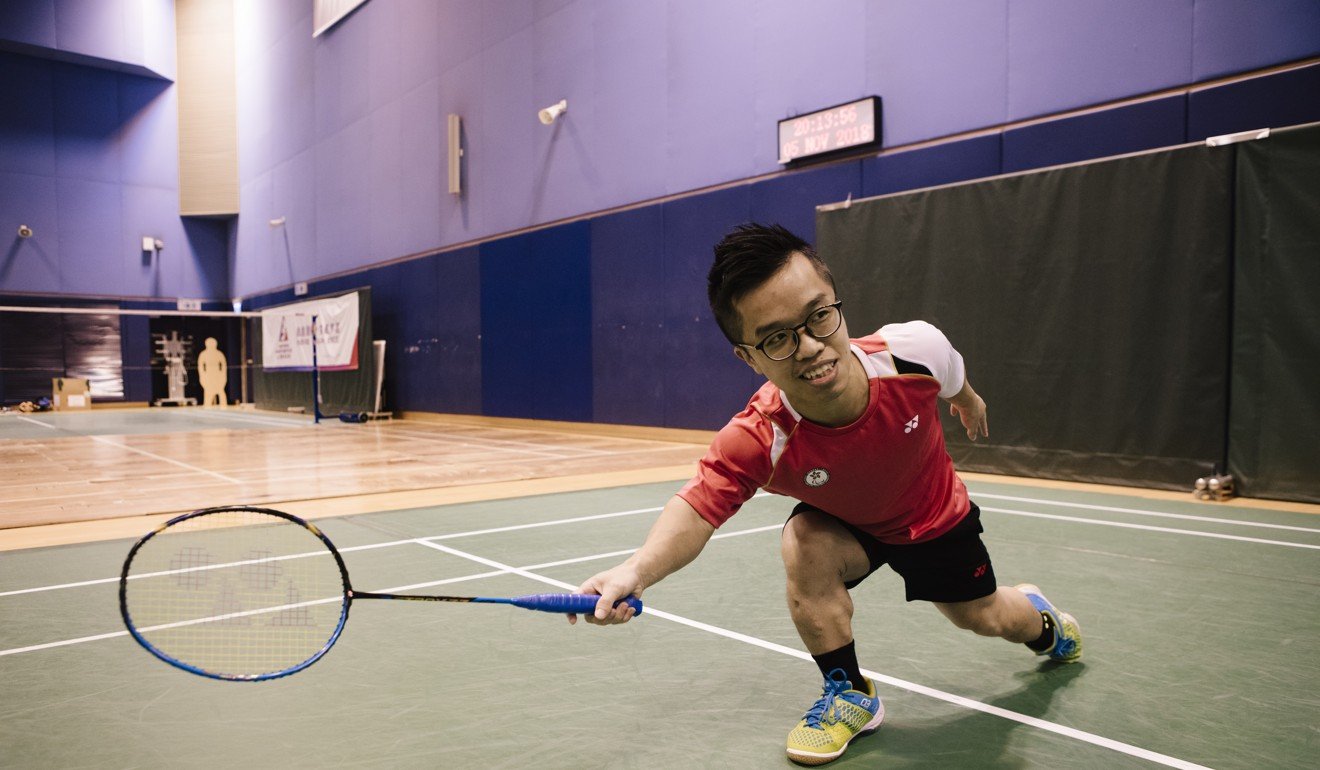
But patience and perseverance paid off. Wong committed to fitness training, working with Cheng and HKSI staff to build up his strength one step at a time. He improved quickly, soon becoming much more confident in his ability.
Cheng and HKSI have adapted the training programme to suit Wong’s needs. The gym’s exercise machines are not compatible with Wong’s stature, so he does his sit-ups and bicep training on a mat on the floor, said Cheng.
There’s pride in the coach’s voice as she recalls the breakthroughs Wong has made over the past few years, not only in terms of physical fitness – “Tim can now run around the 400m track many times” – but also in terms of his ability to embrace challenges with a positive attitude.
Some people blame their parents for their disability, but I’m grateful for having a family who loves me
“Life is hard. Being an athlete is hard. Tim always has been smart and extremely hard-working. But he has also learnt to cope with a situation with courage and take on a challenge with confidence. He is determined to give it all and win,” she said.
Evidently intent on doing his best, it is Wong’s down-to-earth attitude that helps him navigate life’s challenges.
“I’d be lying if I told you I didn’t feel defeated every now and then growing up,” he said.
“But I figured I would live in misery if I kept dwelling on things I cannot change, and there’s nothing I can do about my body.
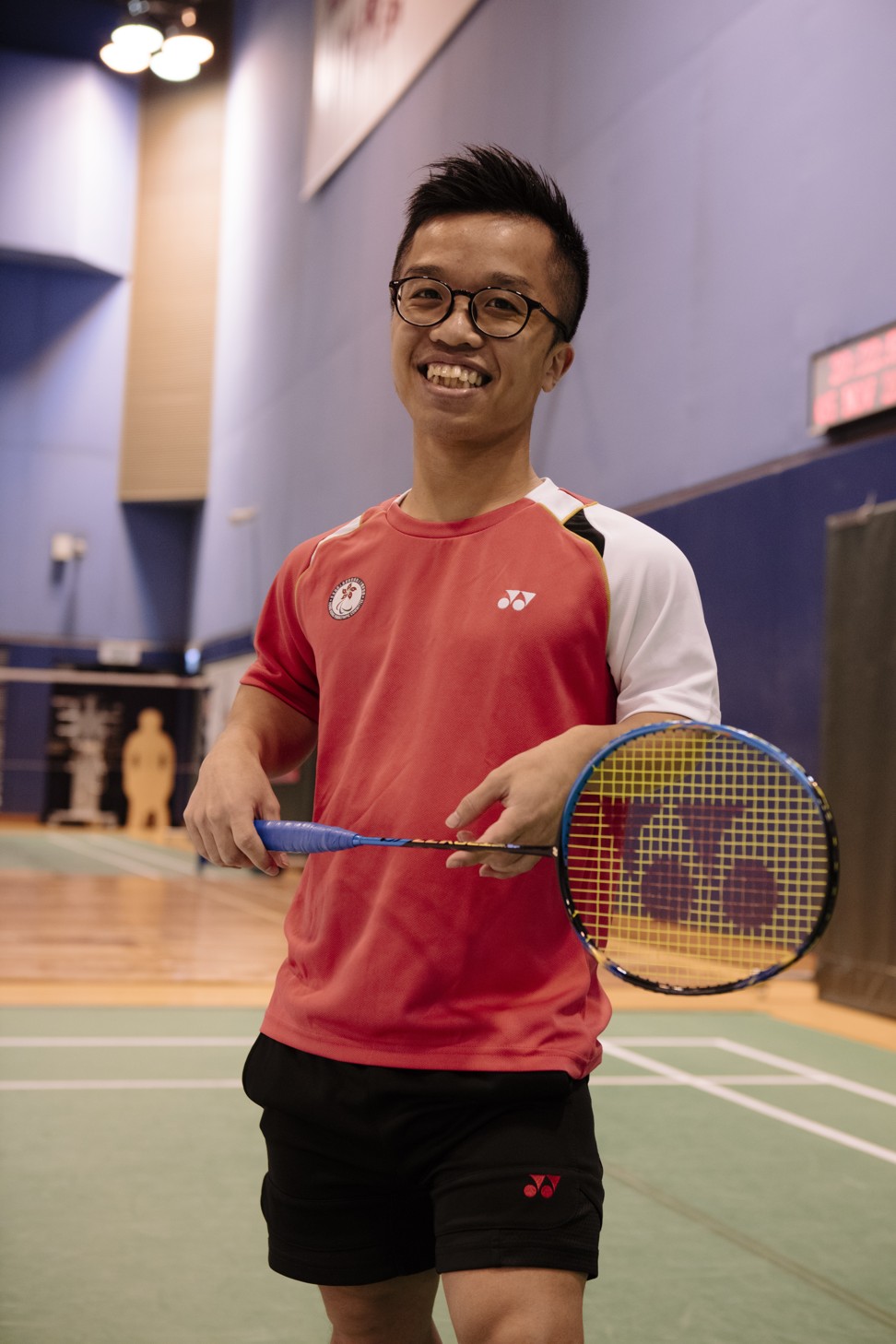
“Some people blame their parents for their disability, but I’m grateful for having a family who loves me. I was an above-average student in school and I’m glad that I’m able to look after myself. I try to focus on my strengths.”
Wong encourages persons with disabilities to take up a sport.
“Playing a sport isn’t just good for our health. It offers us an opportunity to reach our full potential. We all have shortcomings. But if we focus on what we can do and try to do it well, we are living our lives to the fullest,” he said.
Wong is preparing for the Tokyo 2020, where badminton makes its debut in the Paralympic Games. He hopes to gain enough points to qualify.
Tim can now run around the 400m track many times
“I’ve been learning new technical skills and trying to improve my ability to multitask on the court. Since I’m only training part time, I need to find ways to be more effective in my training,” he said.
Ideally, he would like to train 16 to 18 hours a week instead of the 12 hours he currently does.
“I will have to spare more time for training,” he said. “I will try harder, and with my utmost effort.”
Exercise improves strength and fitness, reduces the risk of disease, produces happy hormones, reduces stress, and increases mental as well as physical resilience. Sport is good for everyone, no matter what your physical capabilities are.
With the aim of making exercise universally accessible, the Leisure and Cultural Services Department has rolled out a series of sports training programmes for persons with physical disabilities, intellectual disabilities, hearing impairments and visual impairments. Courses include body-mind stretch, badminton, bocce, floor hockey, table tennis and fitness exercise.
For details, go to lcsd.gov.hk/en/dlso/sport_training.html .
